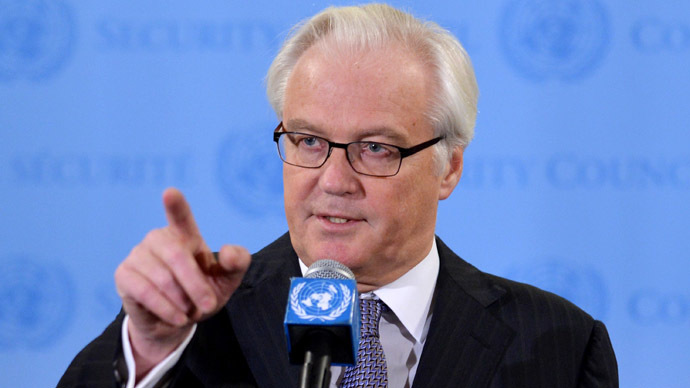Indian dream broken as Russia indicates No chance for new UNSC permanent members
United Nations: Russian Ambassador to United Nations Vitaly Churkin has said that there is no chance of expansion of Security Council in near future regarding permanent members. India, Brazil, Germany and Japan are lobbying for expansion of UNSC since last one decade.

Talking to journalists, he added he did not see any prospect in the near future of a “historic compromise” between the two rival camps.
“One supporting admission of new, veto-weilding permanent members and the other opposing the move — that would pave the way for reforming the 15-member body. I don’t see that historic compromise anywhere near”, said Vitaly Churkin after assuming the Council’s presidency for the month of September.
Replying to a question, the Russian envoy rejected as “populist” a French proposal to limit the use of the veto at the UN Security Council and said it would oppose it. France has launched an initiative to persuade the other four Security Council permanent members to refrain from using their veto when action is required to address mass atrocities.
“We are against it,” Ambassador Churkin said. “We think this is not a workable proposition.”
The veto power accorded to the P-5 dates back to the UN’s establishment, but calls for re-thinking its use have mounted as the world body celebrates its 70th anniversary this year.
The French proposal gained footing after Russia and China used their veto power last year to block a resolution asking the International Criminal Court to investigate crimes committed in Syria. Churkin argued that declaring that mass atrocities have occurred could become a political tool, and raised questions about who would be empowered to make that determination.
“We see it as a somewhat populist proposal. If France wants to limit its own veto they are welcome,” he said.
It may be mentioned that the so-called “Group of Four” comprising of India, Brazil, Germany and Japan is pushing for permanent seats in UNSC while Pakistan along with some other members of so-called Group “Uniting for Consensus (UfC)” opposes any additional permanent members. Pakistan is proposing a new category of members with longer duration, unlike the present two-year term for non-permanent members.
The Security Council is currently composed of five permanent members — Britain, China, France, Russia and the United States — and 10 non-permanent members that are elected in groups of five to two-year terms on the Council.




